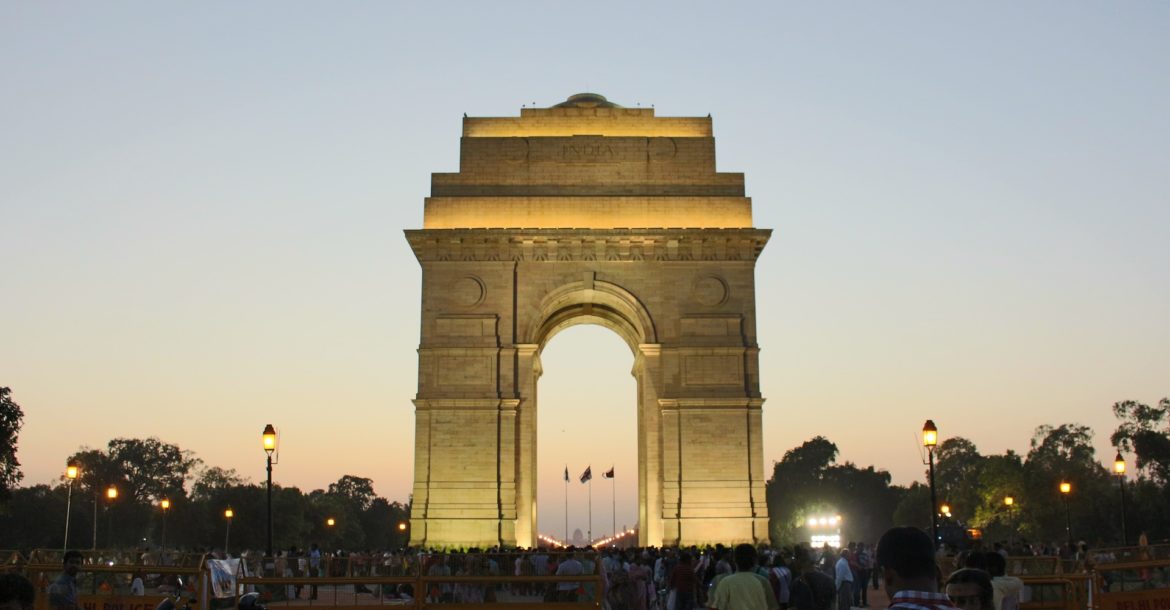From Our Special Correspondent
NEW DELHI: Bharatiya Janatha Party (BJP)-led central government in India has introduced the Indian Constitution (124th Amendment) Bill 2019 to provide reservation up to 10 per cent to financially backward sections of the general category of citizens.
If passed, the reservation would apply to government jobs and admission to higher educational institutions.
Read More
- Cyclone Hamoon makes landfall in coastal Bangladesh
- Biden administration unveils proposed reforms to controversial H-1B Visa programme
- Qatar Airways CEO Akbar Al Baker steps down after 27-year tenure
- EAM Jaishankar, IAEA Director General discuss developmental significance of nuclear energy
- UAE: Ruler of Ras Al Khaimah receives delegation from World Economic Forum
The central government had tabled the upper caste reservation Bill in the Lok Sabha and got it passed on Tuesday.
As many as 323 members voted in support of Bill and only three voted against, underlining the cross-party support the politically crucial Bill elicited.
Who opposed?
The three, who voted against the Bill, were All India Majlis-e-Ittehadul Muslimeen Asaduddin Owaisi and Indian Union Muslim League’s E T Mohammed Basheer and P K Kunhalikutty.
Owaisi citied eight points for opposing the Bill, stating that the constitution does not recognise economically backward and that this Bill will not stand in the court of law.
He said, “You can enjoy your Diwali or whatever today but it will not be valid in court.”
The eight reasons cited by him included that the bill was a blot on the constitution and an insult to Baba Saheb Ambedkar.
“The purpose of reservation is to give social justice and to reduce social economic backwardness. For poverty alleviation there are various schemes that the government can operate. The constitution does not recognise economic weaker sections at all. The architects of our Constitution had more wisdom than this government,” Owaisi said.
Kavita Krishnan, Secretary, AIPWA and Polit Bureau member, CPI(ML), tweeted that quota for economically backward communities will need a constitutional amendment, which will open backdoor to RSS agenda to finish off SC/ST/OBC reservation.
In the Lok Sabha, the government argued that the Bill addresses the need to bring the economically weaker to the mainstream but the opposition alleged that it is being pushed through with an eye on the elections this year.
However, replying to an over four- and half-hour debate, Social Justice Minister Thaavarchand Gehlot sought to allay doubts raised by several opposition members about the legislation’s fate if challenged in the Supreme Court, saying he can say with confidence that the apex court will accept it.
Political analysts say that the Bill is a ‘gimmick’ at a time when Indian Prime Minister Narendra Modi is becoming unpopular after his party lost Madhya Pradesh, Chhattisgarh and Rajasthan assembly polls last month.
What CPM says
Even though Communist Party of India (Marxist) voted in favour of the Bill in the Lok Sabha, the party said in a statement that the decision of the central government accord 10 per cent reservation to the economically weaker sections among the general category is an electoral ploy. “This issue has been under discussion since the Mandal Commission days. The CPI(M) had then said and continues to maintain that such a measure is required. This Cabinet decision, however, is coming without any consultation, particularly when the criteria to determine the beneficiaries of such a step has been fixed for those with family income less than Rs8 lakhs per annum and other criteria which raises the question whether this reservation will really benefit those truly deprived,” the CPIM’s statement read..
“This measure requires amendment to Articles 15 and 16 of the Constitution. An amendment to the Constitution requires time and also the approval of the majority of the state legislatures before it comes into effect. The haste with which the central government has decided, completely exposes the Modi government’s intentions of using this issue just to get electoral dividends,” the statement added.
Meanwhile, Randeep Singh Surjewala, an Indian National Congress leader, said that Congress Party has always supported every step for reservation and extending support to the economically poor sections of the society bereft of Caste, Community or Creed.
“Without interfering with the constitutional mandate of reservation given to Dalits, to Adivasis and to backward classes in any manner, we have always supported that those who are genuinely poor but are not covered among these sections may also be given benefit of opportunities and reservation, both in education and employment,” Surjewala said.
What is the Bill?
The legality of reservation lies in Article 15 and 16 of the Constitution. Article 15 prohibits discrimination on the grounds of sex, religion, colour, place of birth of caste, although it does not inhibit the State from making special provisions for “socially and educationally” backward classes and to scheduled castes (SC) and scheduled tribes (ST).
Article 16 lays down equality in the sphere of public employment; again, not prohibiting affirmative action for SC/ST and the “socially and educationally” backward classes.
Now, the new Bill aims to amend the Constitution to allow such affirmative action on the grounds of economic backwardness as well.
Through this, the government aims to introduce 10 per cent reservation to the economically backward caste, regardless of religion in education and jobs, implying that religious minorities can avail of these benefits.
While this will only currently be applicable at the central level, the government hopes that the states would take inspiration from this law and pass relevant reservations in their respective states.
Who will be eligible?
The Bill aims to grant reservation on grounds of land/property holdings and income, laying down the following criteria; being similar to the method the Supreme Court uses to distinguish the “creamy layer” from OBCs that are excluded from reservation benefits:
a. Household annual income of less than ₹8 lakhs
b. Own less than 1000 sq. feet of residential space
c. Own less than 100 yards of residential space in notified municipalities
d. Own less than 200 yards of residential space in non-notified municipalities
What is status of reservation?
Currently, 49.5 per cent reservation in India is offered on grounds of castes to SC, STs and other backward classes (OBC), with the following breakup:
State governments have the power of implementing their own caste-based reservation distributions for state level government sponsored education and jobs, and this breakup will differ by state.
Regulations that govern reservation
The current form of reservation came through the Mandal Commission instituted in 1978, initially recommended a 52 per cent quota for SC/STs including a 27 per cent reservation for OBCs. The Supreme Court upheld the 27 per cent OBC quota and capped aggregate reservation at 50 per cent in 1992.
Interestingly, the P.V. Narsimha Rao government had first argued for a 10 per cent quota alongside the implementation of the Mandal Report for the economically backward, which the Supreme Court struck down citing the Constitution which only provided exceptions for social and educational disadvantages.






